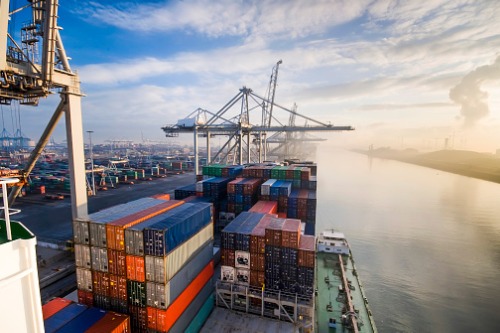

“Coronavirus has struck at a difficult time for the maritime industry as it seeks to reduce its emissions, navigates issues such as climate change, political risks and piracy, and deals with ongoing problems such as fires on vessels,” said Baptiste Ossena, global product leader for hull insurance at AGCS. “Now the sector also faces the task of operating in a very different world, with the uncertain public health and economic implications of the pandemic.”
In 2019, 41 total losses of vessels were reported globally, down from 53 the year before. “This represents an approximate 70% decline over 10 years and is a result of sustained efforts in the areas of regulation, training and technological advancement, among others,” AGCS said. More than 950 shipping losses have been reported since the beginning of 2010, according to the insurer.
COVID-19 challenges
The report highlighted several challenges due to the coronavirus pandemic, including:
“Ship owners also face additional cost pressures from a downturn in the economy and trade,” said Capt. Rahul Khanna, global head of marine risk consulting at AGCS. “We know from past downturns that crew and maintenance budgets are among the first areas that can be cut, and this can impact the safe operations of vessels and machinery, potentially causing damage or breakdown, which in turn can lead to groundings or collisions. It is crucial that safety and maintenance standards are not impacted by any downturn.”
Top loss locations
The South China, Indochina, Indonesia and Philippines maritime region remained the top loss location with 12 vessels in 2019 and 228 vessels over the past decade – one in four of all losses, according to AGCS. The loss level was driven largely by high levels of trade, busy shipping lanes, older fleets, exposure to typhoons, and safety issues on some domestic ferry routes. However, losses declined in 2019 for the second consecutive year. The Gulf of Mexico (four losses) and the West African coast (three losses) ranked second and third.
Cargo ships accounted for more than a third of all vessels lost in the past year at 15. Foundering (sunk/submerged) was the main cause of all total losses at 31. Weather accounted for one in five losses.
Issues with car carriers and roll-on/roll-off (ro-ro) vessels remained among the biggest safety issues, according to AGCS. Total losses involving ro-ros rose year over year, as well as smaller incidents (up by 20%).
“The rise in number and severity of claims on ro-ro vessels is concerning,” Khanna said. “Many have quick turnarounds in port and a number of accident investigations have revealed that pre-sail away stability checks were either not carried out as required, or were based on inaccurate cargo information. Too many times, commercial considerations have endangered vessels and crews, and it is vital that this is addressed on shore and on board.”
